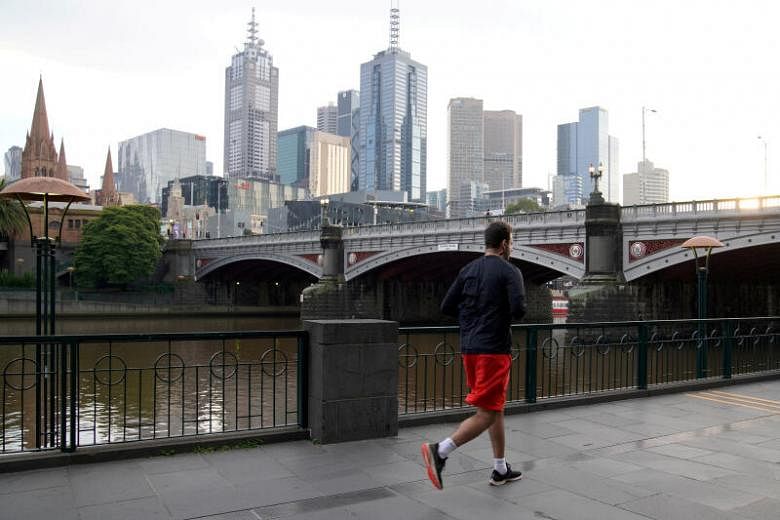SYDNEY - Australia on Tuesday (Oct 6) unveiled plans to take on record debt to fund tax cuts and business support as it charted a path to recovery from the devastating economic effects of the Covid-19 pandemic.
Announcing its first annual budget since the Covid-19 outbreak, the ruling Liberal-National Coalition tried to restore economic confidence despite its plans to take on spiralling levels of debt. The budget deficit is due to be A$214 billion (S$209 billion) this year and the national debt is expected to peak at A$966 billion in 2024.
In his budget speech in Parliament, Treasurer Josh Frydenberg said Australia faced a difficult recovery but "we will get through this together".
"There remains a monumental task ahead," he said. "But there is hope. Australia is up to the task… The Great Depression and two World Wars did not bring Australia to its knees, neither will Covid-19."
The Federal Government's budget forecasts included some revealing assumptions about the future course of the pandemic.
It is assuming that an effective vaccine will be available by late next year. Current travel restrictions are expected to cause an overall outflow of people this year for the first time since 1946, with departures expected to exceed arrivals by 72,000.
The economy is expected to shrink by 3.75 per cent in 2020/21 before increasing - albeit off a low base - by 4.25 per cent next year.
Unemployment is expected to rise to 8 per cent later this year, before falling to 6 per cent by 2023.
Australia had enjoyed 28 years of consecutive growth before the pandemic plunged the nation into a recession.
But the economy has begun to recover, aided by China's continued demand for the nation's iron ore and by Australia's success in combating its Covid-19 outbreak.
As of Tuesday, Australia, which has about 25 million residents, had recorded 27,174 Covid-19 cases and 895 deaths. There were 28 new cases on Tuesday, including 15 in the state of Victoria, which continues to impose harsh restrictions - including a lockdown in Melbourne - after experiencing a second wave.
The budget focused on big-spending measures aimed at promoting business and consumer confidence.
More than eleven million Australians will receive tax cuts of up to A$49 a week, which will be backdated to July 1. An A$4 billion scheme will try to boost hiring of young workers by allowing employers to claim tax deductions of up to A$200 a week for each person they hire who is aged 16 to 35 and was receiving unemployment or other welfare benefits.
Businesses have also received tax incentives to make new investments which could assist 3.5 million firms.
Business groups largely welcomed the budget, saying its targeted spending would help to boost investment and assist employers to create jobs.
"The budget goes a long way to restoring hope and giving us confidence that we can come back stronger and better than before as we combat an unprecedented global downturn," said the chief executive of the Business Council of Australia, Ms Jennifer Westacott.
But welfare groups criticised the failure to compensate for the planned removal later this year of additional benefits that have been given to welfare recipients to help them cope with the effects of the pandemic.
Economics commentator Ross Gittins praised the decision to boost spending. But he criticised the focus on cutting taxes, saying this would do little to assist jobs or retail spending.
"This tax cut is much more about political popularity than getting the economy out of recession," he wrote in The Sydney Morning Herald.
Mr Frydenberg said: "The road to recovery will be hard - but there is hope. The Morrison Government's message to Australians is that we have your back."
The budget is typically released in May but was delayed due to the pandemic.












